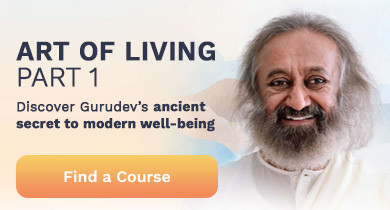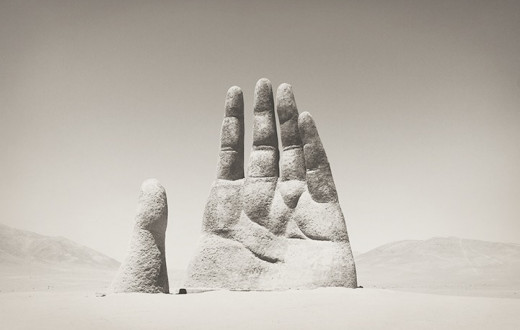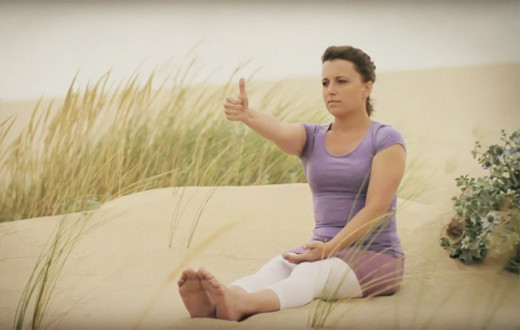The path of yoga or spirituality could be bumpy and very confusing journey. It might be very difficult to evaluate whether you are going forward, sliding backward, keeping the status-quo, or veering off-track.
Yoga is all about inward journey and is so deep and so multidimensional. What could be signs of progress for a budding yogi and spiritual seeker? Is it your flexibility of touching your toes or doing the Hanumanasana (split) or your capacity to stand on your one leg in Tree Pose, or your steadiness to sit still for some hours, or your mastery to hold your breath? Is it about experiencing visions, voices, and other mental or psychic phenomena? Do you have to possess some out of the world siddhis (psychic powers); or your capacity to do daily japa (rosary) or your involvement in many service or voluntary activities?
How do you know you have been making progress on the path of yoga? What are the signs to look out for? In this lucid conversation, Yogacharya Krishan Verma - a Yogi and founding member of Sri Sri School of Yoga, who has taught 15000+ aspiring yogis around the world, gives a simple explanation of how one can measure growth on the path of yoga. Here is the essence of his talk:
1. Do you have a sense of belongingness to your practice?
Just as a child you had your favorite doll or that blanket you could not sleep without; you felt that complete sense of belonging. When you start feeling like the practices belong to you, it become a part of you and get integrated into your very fabric, then growth starts happening automatically.
As you advance in your journey, degree of belongingness you feel to your practices will keep on expanding and deepening.
2. Are you paying less importance to all the thoughts that come in your mind?
Become aware of what is happening in your mind at any given point in time. Are you paying attention to every thought that pops up or are you selective in paying attention to thoughts that come up? The more attention you give to your thoughts, they tend to become concepts in your mind and more one gets entangled in them. Too many thoughts create confusion in your mind and takes you away from the very purpose of yoga which is to quieten the mind “Yoga Chitta Vritti Nirodha”.
As you progress on this path you will develop the ability to pay less and less attention to every thing that comes up in your mind.

3. Do you respect yourself? Have you started honouring the divinity in you?
As you progress on the path of yoga, you will start to develop more and more self-respect, you will start to recognize the divinity that resides within you. The more you develop this ability the more respectful you become of those around you. If you do not recognize the divinity in those around you it is because you have not started seeing the divinity in yourself yet.
As you grow on this path of yoga, this happens naturally. You remain in touch and appreciate the divinity within and outside.
4. Are you able to discriminate between real and unreal?
Viveka is the ability to discriminate. Discrimination not between good and bad but between that what is real and unreal. Unless viveka dawns in you, you perceive every experience and event to be real. This brings pain and misery. But when viveka dawns in you, you realize that everything is impermanent. With this realization, you get less and less shocked, traumatised, shaken by the events, situations and circumstances of your life.
Viveka is like the roots of a tree. on the tree there are many fruits and leaves but what is supporting all of it is are the roots that are hidden deep under the earth. Similarly when viveka dawns, it connects you deeply to your inner being and once you get established in this knowledge of impermanence you are able to handle everything on the outside with ease and you blossom outwardly yet stay deeply connected to the permanence of your being.
As you progress on the path of yoga, your ability to deal with the events with evenness increases many folds.
5. Do you compare your growth only with your own past reference point?
The recommended way of gauging growth is using your past as a reference point. Where you were yesterday and where are you now. Compare only with yourself and just with yourself. Do not get stuck into goals and look so much in the future, that will daunt you. Comparing yourself with yourself will enable you to maintain your enthusiasm and interest in your practices. Developing these qualities take time and you have to practice again and again. Patanjali, the propounder of yoga, calls it “Abhyasa” (practice) - again and again coming back to the practice of staying deeply rooted in the permanence of your being yet blossoming on the outside.
As you advance on the path of yoga, you stop comparing and competing with fellow yogis. Instead you are happy and contented with your own diligent practices and the changes your practice brings in you.
I am sure you will enjoy watching the full video. I would highly recommend you to listen the full conversation.
Spiritual awakening takes patience, loving dedication and the grace of God. If your answer to all or any of these questions is in the affirmative, be absolutely sure that you are progressing steadily and swiftly on the spiritual path.
Enjoy your journey! Don’t worry about the splits!!!






























